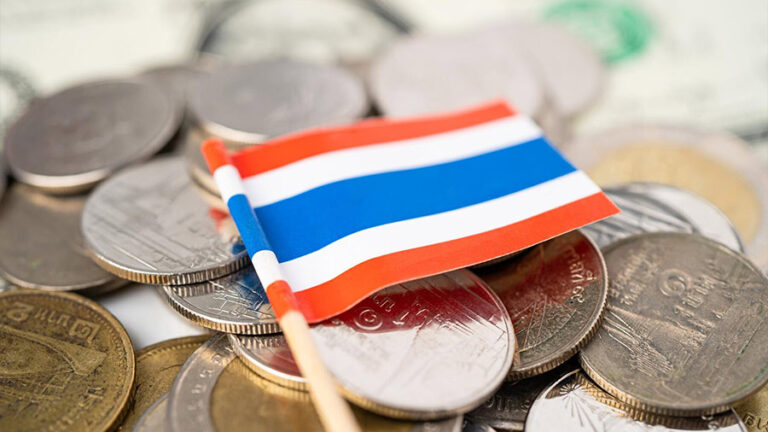Unlocking Secrets: Mastering International Money Transfers
In today’s interconnected world, the ability to navigate the intricate landscape of international money transfers is essential for individuals and businesses seeking to optimize their financial outcomes.
This article will provide valuable insights and tips to help readers unlock the secrets of mastering international money transfers.
From understanding fees and choosing the right provider to exploring alternative payment methods and timing transfers wisely, readers will gain the knowledge and tools necessary to make informed decisions in this complex realm.
Key Takeaways
- It is important to research and compare different money transfer providers to find the most cost-effective option.
- Exploring alternative payment methods, such as cryptocurrency or peer-to-peer platforms, can offer benefits and drawbacks for international money transfers.
- Timing your money transfers wisely by monitoring exchange rates and using strategies like limit orders and forward contracts can help you get the best rates.
- Additional tips and considerations include checking for hidden fees, understanding the importance of transparency and customer support, and keeping track of transfer limits and compliance requirements.
Understanding International Money Transfer Fees
When it comes to understanding international money transfer fees, it is essential to have a clear grasp of the various charges and costs involved.
Different methods of transferring money internationally can incur different fees, such as wire transfer fees, currency conversion fees, and intermediary fees.
These fees can vary depending on the amount being transferred, the destination country, and the transfer provider.
It is important to compare fees charged by different money transfer providers to find the most cost-effective option.
Factors that can affect the cost of international money transfers include exchange rates, transfer speed, and the chosen payment method.
Choosing the Right Money Transfer Provider
Selecting the optimal money transfer provider requires careful consideration of various factors.
One important factor is reliability. When researching and comparing different money transfer providers, it is important to look for a provider with a proven track record of delivering funds securely and on time.
Another factor to consider is reputation. A provider with a strong reputation is more likely to offer reliable services. It is helpful to read reviews and ratings to gauge the level of satisfaction with a particular provider.
Customer service should also be a top priority. It ensures that any issues or concerns can be addressed promptly and efficiently.
Finally, it is important to consider the features and benefits offered by different providers. This includes competitive exchange rates, low fees, and convenient transfer options.
Utilizing Alternative Payment Methods
By exploring alternative payment methods, individuals can expand their options for international money transfers while minimizing fees and increasing convenience. Here are three alternative payment methods to consider:
- Cryptocurrency: Using cryptocurrency, such as Bitcoin, for money transfers offers benefits like low fees, fast transactions, and increased security. However, it also comes with drawbacks such as price volatility and the need for both parties to have cryptocurrency wallets.
- Peer-to-peer payment platforms: Platforms like PayPal and Venmo allow users to send money internationally easily and quickly. They are convenient and often have lower fees compared to traditional methods. However, exchange rate markups and limited availability in certain countries can be potential downsides.
- Digital wallets: Digital wallets like Skrill and Neteller offer a secure and convenient way to transfer money globally. They allow users to hold multiple currencies and make transfers instantly. However, some digital wallets may have higher fees compared to other methods, and not all merchants or individuals may accept payments through these wallets.
Timing Your Money Transfers Wisely
Optimizing the timing of your money transfers can significantly impact the amount you receive, allowing you to take advantage of favorable exchange rates and avoid unnecessary fees.
Timing your transfers wisely involves understanding the impact of exchange rates on international money transfers and implementing strategies to get the best rates. One way to do this is by monitoring market trends and economic indicators that can affect currency values.
Additionally, using limit orders and forward contracts can help you lock in exchange rates when they are favorable. It is also important to avoid peak times and holidays when transferring money, as these periods often result in higher fees and less advantageous rates.
By carefully considering the timing of your money transfers, you can maximize the value of your international transactions.
| Strategies for Timing Your Money Transfers |
|---|
| 1. Monitor market trends and economic indicators |
| 2. Use limit orders and forward contracts |
| 3. Avoid peak times and holidays |
| 4. Consider the impact of political events |
| 5. Seek professional advice for complex transfers |
Additional Tips and Considerations
Furthermore, it is important to double-check the accuracy of recipient information and account details to ensure a smooth and successful international money transfer.
Mistakes in entering the recipient’s name, address, or bank account number can result in delays or even the loss of funds.
In addition to this crucial step, there are several other tips and considerations to keep in mind when making international money transfers:
- Consider the exchange rate: Exchange rates can fluctuate, and even slight variations can significantly impact the amount received by the recipient. It is advisable to compare rates offered by different providers and consider timing the transfer when rates are favorable.
- Research transfer fees: In addition to exchange rates, it is important to understand the fees charged by money transfer providers. Some providers may have hidden fees or higher charges for certain currencies or transfer methods. Comparing fees can help choose a cost-effective option.
- Check transfer limits and compliance requirements: Different countries may have transfer limits and compliance requirements that need to be met. It is essential to be aware of these limits and ensure compliance to avoid any issues or delays in the transfer process.
Exploring Exchange Rate Strategies
Three common exchange rate strategies can help individuals maximize the value of their international money transfers. The first strategy is to monitor market trends and economic indicators to identify favorable exchange rates. This involves keeping track of exchange rate fluctuations and understanding the factors that influence currency values.
The second strategy is to use limit orders, which allow individuals to set a specific exchange rate at which they are willing to make a transfer. This strategy can help them take advantage of favorable rates when they become available. The third strategy is to use forward contracts, which allow individuals to lock in an exchange rate for a future transfer.
This can provide protection against unfavorable exchange rate movements. By employing these strategies, individuals can make informed decisions and potentially save money on their international money transfers.
| Exchange Rate Strategies | Description | Benefits |
|---|---|---|
| Monitoring market trends and economic indicators | Keeping track of exchange rate fluctuations and understanding currency value influences | Identifying favorable exchange rates |
| Using limit orders | Setting a specific exchange rate at which to make a transfer | Taking advantage of favorable rates |
| Using forward contracts | Locking in an exchange rate for a future transfer | Protecting against unfavorable rate movements |
Maximizing Cost-Effectiveness in Money Transfers
To achieve maximum cost-effectiveness in money transfers, it is essential to carefully consider various factors and make informed decisions.
Here are three key strategies to help you maximize cost-effectiveness in your international money transfers:
- Research and compare different money transfer providers: Take the time to research and compare the fees charged by different providers. Look for providers that offer competitive exchange rates and low transfer fees.
- Utilize alternative payment methods: Explore alternative payment methods such as cryptocurrency, peer-to-peer payment platforms, digital wallets, and prepaid debit cards. These methods can often offer lower fees and faster transfer times compared to traditional transfers.
- Time your transfers wisely: Keep an eye on exchange rates and market trends to identify favorable rates. Consider using limit orders and forward contracts to lock in exchange rates when they are in your favor. Avoid peak times and holidays, as these periods may result in higher fees and slower transfers.
Frequently Asked Questions
What Are Some Potential Risks or Scams to Watch Out for When Making International Money Transfers?
When making international money transfers, it is important to be aware of potential risks and scams. These can include phishing attempts, fraudulent money transfer services, and identity theft. It is crucial to verify the legitimacy of the provider and protect personal information.
Are There Any Restrictions or Limitations on the Amount of Money That Can Be Transferred Internationally?
There may be restrictions or limitations on the amount of money that can be transferred internationally. Factors such as local regulations, anti-money laundering measures, and the policies of money transfer providers can impact the maximum transfer amount allowed.
How Long Does It Typically Take for an International Money Transfer to Be Completed?
The time it takes for an international money transfer to be completed can vary depending on several factors such as the countries involved, the chosen transfer method, and any additional security checks required.
Can I Cancel or Modify an International Money Transfer Once It Has Been Initiated?
Once an international money transfer has been initiated, it may not be possible to cancel or modify it. It is important to carefully review the terms and conditions of the transfer before initiating it to avoid any potential issues.
What Are the Potential Consequences of Providing Incorrect or Incomplete Information During an International Money Transfer?
Providing incorrect or incomplete information during an international money transfer can lead to various consequences. These may include delayed or failed transfers, additional fees or charges, loss of funds, and potential legal or regulatory issues. Accuracy and attention to detail are crucial to ensure successful transactions.
Conclusion
In conclusion, mastering international money transfers requires a comprehensive understanding of the different methods, fees, and factors that come into play.
By carefully considering these aspects, individuals and businesses can make informed decisions that optimize their financial outcomes.
Additionally, exploring alternative payment methods, timing transfers wisely, and utilizing exchange rate strategies can further enhance cost-effectiveness.
It is also crucial to consider additional tips and considerations, such as hidden fees, transparency, and seeking professional advice when needed.
With the knowledge and tools acquired, navigating the complex landscape of international money transfers becomes more manageable.







